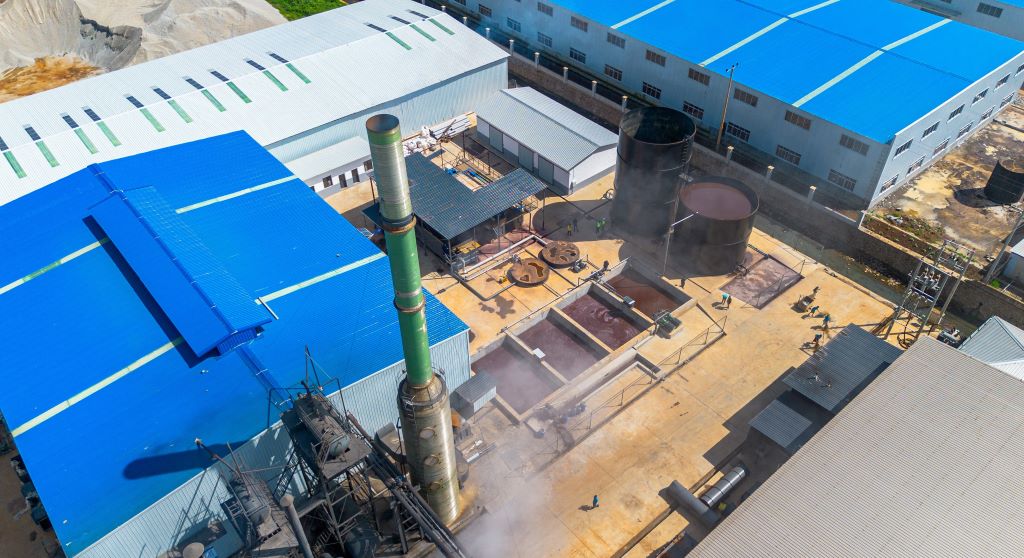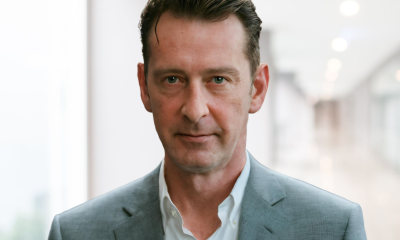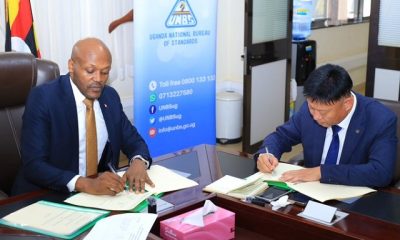Business
Chinese In Sino-Uganda Mbale Industrial Park Invest $2.5M in Water Treatment
The Chinese-run Sino-Uganda Mbale Industrial Park has made a significant stride in environmental stewardship, investing approximately $2.5 million in advanced water treatment systems. This substantial commitment, announced just as the world observes World Environment Day, is being lauded by officials as a transformative move combating water pollution and drastically improving the park’s environmental footprint.
Dan Akampulira, Head of Health, Safety & Environment at Tian Tang Group, which operates the park, detailed the ambitious scope of the initiative. “So far, we’ve invested approximately $2.5 million specifically into this water treatment system,” Akampulira stated. “Our goal is that in a few years, all wastewater generated within this park will be treated and reused internally, with no discharge outside. We even aim to treat and reuse wastewater from the neighbouring community in the future.”
This dedication to water conservation and pollution prevention resonates strongly with the themes of World Environment Day 2025, which, while globally focused on “ending plastic pollution,” underscores the urgent need for sustainable practices across all sectors.
The park’s wastewater management system is comprehensive. All water from production processes undergoes rigorous treatment within facilities like the one at Nile Textiles, which boasts over seven treatment tanks, each with a capacity of at least 2 million litres. This collective capacity of over 14 million litres allows for thorough treatment and reuse. “Within approximately three days, the water is fully treated and then re-used back in the factory for production and other purposes,” Akampulira explained, emphasising the park’s commitment to internal recycling.
Local authorities and community leaders have witnessed a dramatic shift. James Kutosi, Mbale City Senior Public Relations Officer, remarked on the park’s evolution. “Initially, there were a number of issues between the park and the community, particularly regarding environmental concerns,” Kutosi acknowledged. “However, over time, especially following the floods that occurred, there have been substantial developments within the industrial park. Environmental concerns have been addressed so thoroughly that we now view the park not as a problem, but rather as a solution for our communities.” Kutosi also highlighted the park’s alignment with global sustainability goals, including SDGs 12 and 13, which address responsible consumption, production, and climate action.
Jacob Wataka, Local Council One Chairperson for Nsambya Cell, affirmed the positive environmental changes. “We haven’t experienced any significant environmental issues, particularly within the Sino-Uganda Mbale Industrial Park,” Wataka noted, crediting the park management’s “proactive measures to prevent environmental degradation, such as digging proper water channels and establishing a green belt.” He also reported a lack of air pollution, attributing it to the factories’ “high-level technology machines that minimise emissions.”
Abdallah Hasango, the Labour Officer for the Industrial City Division of Mbale City, corroborated these improvements from an occupational safety and health (OSH) perspective. “Based on our ongoing inspections and movements — including recent visits with the environmental officer — we have observed significant improvements,” Hasango stated, noting the now visible and effective water cycle within the park, ensuring no negative impact on the community.
Beyond water treatment, the Sino-Uganda Mbale Industrial Park, which employs over 15,000 Ugandans and produces a wide array of goods from steel and glass to textiles and electronics, also implements comprehensive solid waste management, including segregation and disposal by licensed handlers. Textile factory off-cuts are repurposed, and industrial chemical waste is managed through dedicated sumps. Daily awareness and training campaigns reinforce environmental best practices among workers and management.
While the Sino-Uganda Mbale Industrial Park demonstrates proactive measures on water and general waste, the broader national and global context of World Environment Day 2025, with its theme “United Against Plastic Pollution,” serves as a reminder of ongoing environmental challenges. Research by NEMA reveals that globally, a staggering 8.3 billion tons of plastic have been produced, with only 9% recycled. In Uganda alone, approximately 600 metric tons of plastic waste are generated daily, with Kampala collecting only about 30% of its plastic waste.
Tony Achidria, Senior Environment Awareness Officer at NEMA, emphasised the severe impacts of plastic pollution on human health, the environment, and Uganda’s blue economy. He also highlighted unsustainable disposal methods, including open burning, which contributes to air pollution, responsible for over 1.2 million deaths annually in Africa.
As Kabale District hosts Uganda’s national World Environment Day celebrations today, and the Republic of Korea hosts the international event with a focus on ending plastic pollution, the efforts of the Sino-Uganda Mbale Industrial Park stand as a beacon of what is possible when industrial development prioritises environmental sustainability. The park’s investment not only safeguards local ecosystems but also sets a precedent for responsible industrial growth in Uganda.
Comments



























